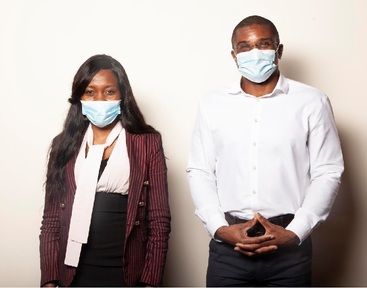Home care agency creates video encouraging BAME care workers to take COVID vaccine
A home care agency and a surgeon have collaborated to create a video encouraging care workers and their families from BAME communities to take up the offer of the COVID-19 vaccine.

In a recent survey by the Royal Society for Public Health (RSPH) where they polled 2000 adults, the RSPH found 76 per cent of people overall would receive the COVID-19 vaccination, if their GP advised them to do so. However, this fell to 57 per cent for respondents from Black, Asian and minority ethnic (BAME) backgrounds.
The RSPH also stated over one third (35 per cent) of BAME respondents said they would likely change their minds and get the jab if given more information by their GP about how effective it is.
Misinformation spread through social media and messaging apps, coupled with greater mistrust of the government has increased vaccine hesitancy.
To help dispel misconceptions and vaccine myths, Care 1st Homecare, based in Bristol, and Mr Obi Nwogwugwu, a senior fellow and surgeon of Hepatobiliary surgery at the Bristol Royal Infirmary (NHS), have collaborated to create a video to encourage uptake within the BAME community.
Kay Morley-Cooper, director of Care 1st Homecare said: “We’ve heard some anxiety from individuals within the BAME community about the vaccine, and we want to reassure everyone that the vaccine is safe.
"We created this video to share with the BAME community to encourage uptake and get rid of the fake news. So please, share it far and wide. We’ve come this far in our fight against COVID-19 - please get the vaccine and let’s get out of this lockdown.”
Mr Nwogwugwu is well placed to answer any questions about the COVID-19 vaccination having had both the AstraZeneca and Pfizer vaccination. Questions include concerns about the vaccines being vegan and the impact of fertility if someone was to take the offer of the vaccine.
Mr Nwogwugwu said: “COVID-19 has claimed many lives and led to a huge change in the way our society runs. We’re taking all measures possible and the vaccination is one of them.”
Some of the myths surrounding the vaccine are concerns around safety of the vaccination, along with the alleged claims of the vaccine being used to collect DNA.
Mr Nwogwugwu said: “Collecting DNA is certainly not the case. Vaccinations have been around for decades and this is certainly not dissimilar to any other vaccine that has been created. In fact, it is potentially even safer than some already out there. When they started creating the vaccine, they were not starting from scratch.
“The SARS COV-1 virus already had a partially designed vaccine, and so they were able to build upon and learn from this to create the vaccine for COVID-19.”
Mr Nwogwugwu enrolled in the trial for the Oxford, AstraZeneca vaccine, and had the first dose in June 2020, receiving the second a few months later in August. When the official vaccine rollout for the Pfizer vaccine took place in December, Mr Nwogwugwu registered for this too, and had his first dose.
Having had both versions of the vaccine, Mr Nwogwugwu reported no symptoms, although patients may show slight flu-like symptoms. Health authorities are working hard to process data to collect and report on the effects of the vaccine.
'Please get the vaccine and let’s get out of this lockdown'
According to the Office for National Statistics, people from ethnic minorities are more likely to test positive for COVID-19 compared with white ethnic groups. COVID-19 death rates are also higher for most ethnic minorities compared with white ethnic groups. This is in part because of the types of jobs and housing more common among ethnic minorities, but this does not completely explain the disparity.
Black and Asian men are more likely to work in occupations that have had a higher risk of death involving COVID-19, such as transport, security and cleaning.
For working women, there were higher rates of death involving COVID-19 in four professions including nursing, and people working as care workers or home carers.
Of women working as care workers and home carers, a relatively high proportion were from Black ethnic backgrounds (13.2 per cent). There were also higher proportions of women in nursing from Indian, Black and Other ethnic backgrounds.
click here for more details or to contact Care 1st Live in Homecare
Latest News
 29-Jul-24
Dementia Bus gives carehome.co.uk staff insight into life with dementia
29-Jul-24
Dementia Bus gives carehome.co.uk staff insight into life with dementia
 27-Jul-23
UK's top home care agencies in 2023 revealed
27-Jul-23
UK's top home care agencies in 2023 revealed
 30-Nov-22
A quarter of older people keep their falls secret from family
30-Nov-22
A quarter of older people keep their falls secret from family
 29-Nov-22
'Covid-19 has not gone away' say terminally ill
29-Nov-22
'Covid-19 has not gone away' say terminally ill
 28-Nov-22
IT consultant who received poor care opens 'compassionate' home care business
28-Nov-22
IT consultant who received poor care opens 'compassionate' home care business